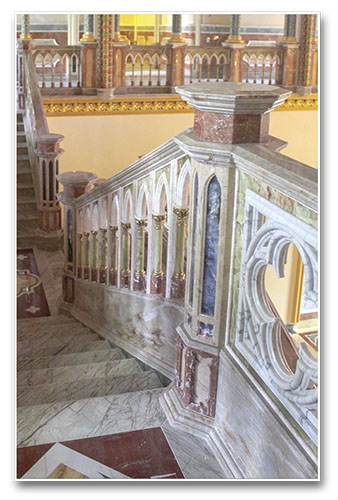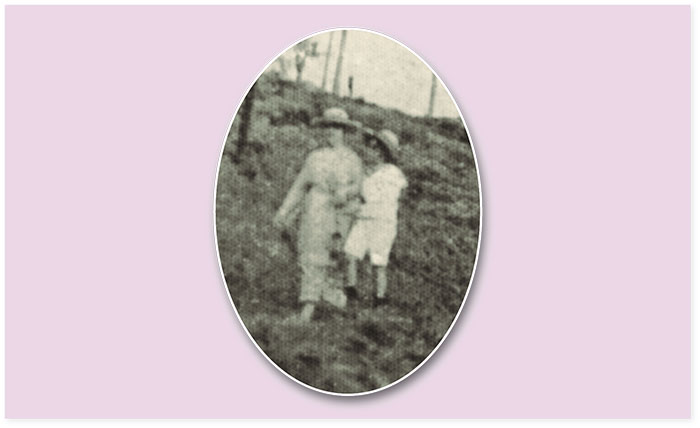At the time when my spirit was being formed, the Revolution insisted a great deal on a terrible point, which it no longer insists on today because it thinks it has won the battle. When I was young, the battle was almost won, but there was still something left that resisted the Revolution.
The idea was as follows. Goodness consisted essentially in not causing displeasure, sadness or indisposition of soul to anyone. Thus, everything that represented authority would somehow be contrary to goodness. This is because authority imposes the fulfillment of the law, and every law obstructs someone in something. Therefore, the purpose of authority was to obstruct and to make others suffer. As a result, an ideal world would be one free of authority.
Authority is man’s friend
First of all, it is not true that the purpose of authority is to cause suffering. On the contrary, the world would be a hell if there were no authority to prevent the wicked from tormenting the good. It is because authority exists that, for example, thieves are prevented from stealing – or deterred as far as possible – and murderers are afraid to kill. One can walk safely on the street because there are traffic laws and authorities charged with enforcing those laws. Otherwise, either vehicles would not be used and people would be forced to walk, or vehicles would be killing people all the time.
In other words, authority exists to enforce laws and protect the good. It is man’s friend, not his enemy. It makes him suffer – this is a different matter – because of original sin.
Indeed, after Adam’s fault man was inclined to evil and subject to error. Authority hinders him from doing what he ought not to do and therefore, in a certain sense, is an unpleasant presence. However, if we imagine a society without authority, we will understand how agreeable this presence is.
The handrail of a staircase
The most concrete example of this is the handrail on a staircase.

Children often like to go down the handrail of the stairs instead of the steps. If the handrail is very smooth and lends itself to this, they slide down from top to bottom. One might think it is amusing, but it is imprudent. If a child falls from a considerable height, he might injure his spine and be paralyzed. If he is ten years old and lives to be ninety, he will spend eighty years lying in a bed, waiting for liberation by death, because he had no regard for the authority that obliged him to respect the handrail.
Authority plays the role of a handrail in life: it guides one on the stairs, it protects people. All this makes life both orderly and pleasant, as is the case with a well-built and beautiful handrail.
A tone of voice that instilled respect for authority
The art of educating consists in forming children in such a way that they see the reasonable side of authority and the beautiful aspect of hierarchy, in order to love obedience. In this way, they become friends of the Counter-Revolution, instead of becoming friends of the Revolution.
My mother’s attitude in the face of this problem was as follows.
Her voice, though not that of a singer, was very pleasant for conversation, full of inflections. And these were very delicate, sweet inflections, which corresponded to the movements of her temperament and said what she wished to express. Because of this she also had very low, deep tones, which were not terse, but made one perceive the gravity of what she was saying.
Her temperament was capable of being very serious, and when speaking she usually took everything she said very seriously. When she mentioned any authority, she spoke with a certain respect and used a certain tone of voice that made us feel why and in what way that authority was respected.
Veneration for the priesthood
An example of this was in the way my mother would speak of a priest.
My father had a first cousin who was a priest; his name was Canon Luís Cavalcanti. A very intelligent man, he had remained a bachelor until at a mature age he decided to become a priest, and was ordained in the Archdiocese of Rio de Janeiro.
He was a very good conversationalist and, when he came to São Paulo, he would be invited to our house for lunch or dinner. My mother’s relatives would also come to listen to the remarks of my father’s cousin. And it was a good thing, because being a priest he used to engage in arguments with some of my uncles who were atheists.
In these discussions he would come out on top due to his culture and intelligence, but it was done with a certain politeness and affability. So much so that those unbelieving uncles even liked to admit defeat and then laugh; the priest, when he put them up against the wall, would also laugh in a kindly way and that constituted a very pleasant conversation. Because I was a boy, I did not really understand the subjects of the discussions, but I liked to observe the interplay of facial expressions, the tones of voice and the attitudes of the persons involved.
My mother had a very intelligent brother, who asked the priest provocative questions. I would look at the priest and think: “This time it looks like he is against the wall.” He would listen very calmly and say: “You know, this needs to be looked at from a different angle.” The priest would then reword the question, putting it in the proper perspective, and my uncle was “shot down”.
When Dona Lucilia spoke of this relative, she never did so without an inflection in her voice that expressed that, in addition to being her husband’s cousin (and therefore also her own), he was a priest of the Catholic Church. She never said “cousin Luís”, but “Father Luís” and, later, “Canon Luís”. The words father and canon took on an inflection that communicated all her veneration for him, because he was a minister of God.
My mother’s way of saying the word “priest”, of referring to him, of addressing him, of showing him special attention and solicitude that she did not show to other relatives, helped a child to learn what a priest was, even before he understood the Catholic doctrine on the priesthood. In this way, the heart was ready to receive what the Faith would later demonstrate through the Church’s teaching. ◊
Taken, with adaptations, from:
Educating her Children in Love for Authority.
In: Dr. Plinio. São Paulo. Year XIV. N.155
(Feb., 2011); p.6-8.

